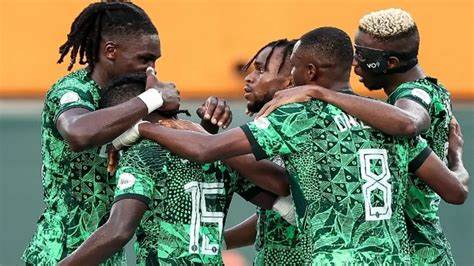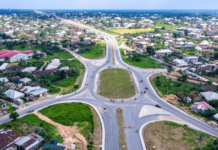As the Super Eagles prepare to face South Africa in a crucial 2026 World Cup qualifying match on June 7th, an unlikely issue has taken center stage, the new/old national anthem. Following the Federal Government’s reintroduction of the anthem used in the 1960s and 70s, concerns have arisen over the players’ ability to sing it properly.

Former Nigerian goalkeeper Peterside Idah voiced his apprehension on Facebook, expressing worry that the players might “disgrace us while the National Anthem is being played.” This ignited a flurry of responses from fans and pundits, with some offering a rather unorthodox solution, mime the anthem.
Dimeji Lawal, a former Nigerian striker and current general manager of Shooting Stars Sports Club, led the charge, advising the players to simply move their lips without uttering a word. “The microphone will not be in their hands; all they’re expected to do is miming,” Lawal stated, drawing a peculiar parallel with the lip-syncing duo Milli Vanilli from the 80s.
The sentiment was echoed by John Atoyebi, who recalled instances of foreign-based Nigerian players from the 1994 squad standing silently during the anthem. “They will fold their hands, mute, and look up… There is no wahala in being quiet unless you know the lyrics,” he wrote, suggesting it’s a common practice even among England players.
The debate highlights the absurdity of expecting modern-day players, born long after the old anthem’s heyday, to master lyrics from a bygone era. As one commenter aptly put it, “Nobody should blame them if they can’t recite the anthem; I bet it if [President] Tinubu himself knows how to sing it.”
While the anthem debacle may seem trivial, it underscores the disconnect between policymakers and the realities faced by athletes. As the nation grapples with myriad challenges, imposing an archaic anthem on players already burdened with the weight of representing their country seems ill-advised.
However, the pragmatic approach suggested by fans – to lip-sync, or “mime,” the anthem – could offer a temporary solution, allowing the players to focus on the more pressing matter at hand: securing vital points in their World Cup qualifying campaign.
As the Super Eagles take the field in Uyo, the eyes of the nation will be upon them, not to scrutinize their anthemic prowess but to witness their determination and skill on the pitch. And if they choose to remain silent during the anthem’s rendition, it may well be a symbolic protest against outdated impositions that threaten to distract from the true essence of the beautiful game.




